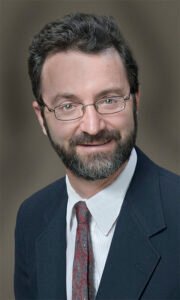By Deborah Jeanne Sergeant
Integrative medicine will see a number of trends this year. We spoke with two practitioners. Here’s what they had to say:
• “Integrative medicine is moving more toward a non-pharmaceutical approach to different syndromes.
• “What I tell people to do who talk with me about integrative medicine is I have people focus on the basic pillars of primary and secondary prevention.
• “Once you’ve developed a chronic disease, we look at, ‘Is my diet the healthiest it can be?’ ‘How many servings of plant-based foods do I eat?’ ‘Am I eliminating processed foods like refined sugars?’ ‘Am I eating the right amount of calories per day?’ ‘How best can I use food as source of nutrients?’
• “Exercise is definitely being recognized as important for maintaining physical and cognitive health. Exercise can reduce stress and anxiety. There are long-term benefits for reducing risk of cognitive impairment.
• “One thing we overlook is the importance of sleep and getting a good amount of total sleep and restful sleep. Impaired sleep is associated with impaired cognition and can have long-term effects on cardiovascular and cognitive health. I try to get people to focus on those. When we eat later in the day, and drink alcohol, it disrupts the sleep cycle. How can we decompress and shut off our brains? I have people focus on sleep hygiene and at least seven hours or restful sleep and work on shutting the brain down.
• “We’re recognizing the role of alcohol in health. More studies link it to certain cancers and cognitive issues later in life. The American Cancer Society recently came out with guidelines to limit alcohol to two per week. That’s my approach for how best they can prevent illness and manage chronic conditions.
• “We all deal with stress, but we look at how we approach stress and reduce it. Stress is a killer that worsens cardiovascular conditions and sleep.
• “Meditation is something people should incorporate daily into their routines. I recommend yoga for people who want some type of more of a combination of mindfulness and flexibility exercise. There’s a host of things we can do to decompress.

Physician John Fudyma holds a master’s in public health and serves as interim division chief, general internal medicine at UBMD Internal Medicine, associate professor department of medicine at Jacobs School of Medicine and Biomedical Sciences, University at Buffalo.
• “People are interested in immune support. Because of the pandemic, the number of public presentations I’ve been asked to give has dropped off but the last one was at the public library and I was asked to speak on immune system enhancement. Another one coming up, I was asked about immune system.
• “I don’t know as though there’s a trend, but since the pandemic, but I have a lot of patients coming with symptoms consistent with thyroid disease. They want guidance.
• “Often, people have symptoms without a diagnosis. Physicians may have done a complete workup and have nothing else to give them. The patients may be frustrated with the number of pills they’re on.
• “The ones who come with an explicit goal of reducing medications is actually very few. I ask on the intake, ‘How did you learn of this practice? Why are you here today?’ And sometimes people write an essay, but generally it’s a few words as to symptoms or a diagnosis.
• “There are some people where their treatment is working and they want to get off medications, but most, conventional medicine has not offered anything to significantly improve their quality of life. A lot of patients want a pill for every ill but that’s not people who are seeking me.
• “I think over the past five years, there have been a number of nurse practitioners who have opened practices in integrative medicine. In terms of physicians, it’s myself and one more. There’s a smattering of nurse practitioners and some offer IV vitamins and IV treatments.”
 Physician Sanford Levy specializes in internal medicine and practices integrative holistic medicine in Buffalo.
Physician Sanford Levy specializes in internal medicine and practices integrative holistic medicine in Buffalo.

